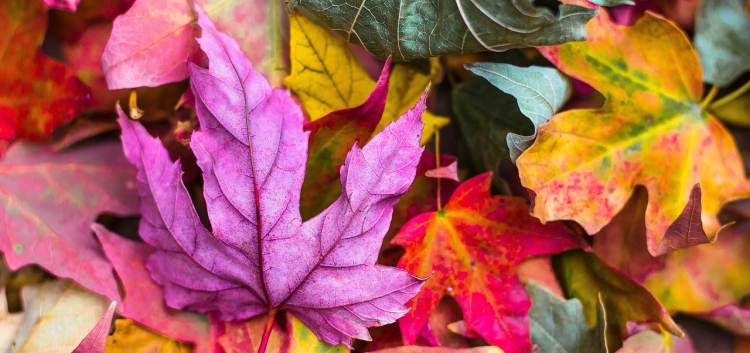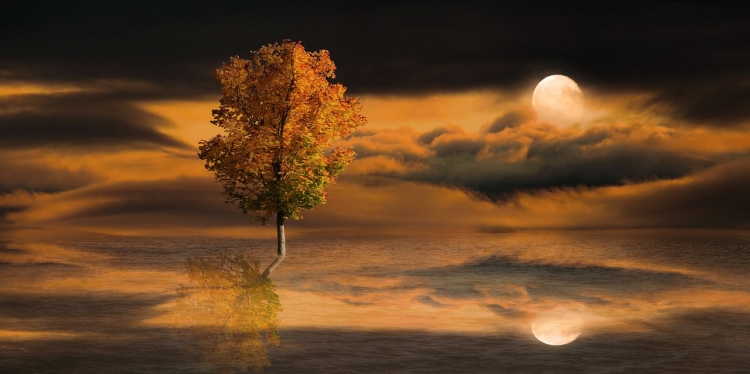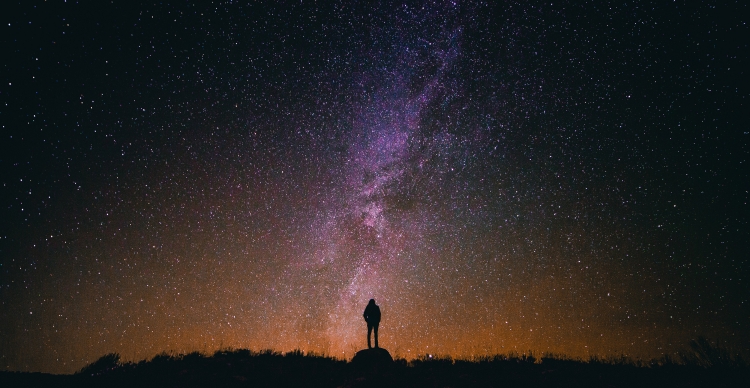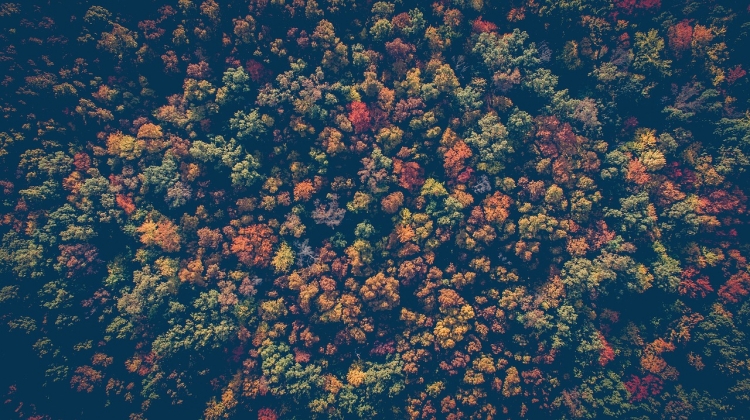Autumn is the season of dying and death – but life, as in our own experience, carries on. Winter, to me, is the first season of life. In temperate zones, perennial plants, most notably trees, are asleep in winter. Thing is, a lot of infant vegetative color appears throughout the winter – stems, twigs, and buds of purple and red are all around. Pines, spruces, cedars, and firs continue photosynthesizing. Their needles and scales are covered in a thick cuticle – a heavy wax coating – to survive the cold dark months.
Those broad-leaved trees, beginning their dazzling autumnal display, are very vulnerable to cold weather damage. They will fall to the forest floor this season to decompose, provide soils with nutrients, and hold moisture from rainfall. The leaf detritus will also serve as a vital nutrient source for numerous soil fauna. When leaves decay, they are of incredible importance to the forest ecosystem, even in death.

The winter solstice, the first day of the winter season, is the darkest day of the year – autumn has lost her light. This means, though, that every following day gets longer. Seasons enable us to see the cycle of life. Like winter, our biological lives begin in darkness, but, as we grow and develop our days slowly grow brighter. Like spring, we blossom and flourish in youth. In the summertime of our lives, our years become productive, our days long, and our nights wild. Our season then turns to wisdom. Like autumn, we stay productive, but slow down. Eventually, like all autumn leaves, we fall and rot. This death, though, the decay of detritus, serves to make ecosystems stronger, i.e., the labor of our lives passes on knowledge to rising generations. In our eternal sleep, throughout winter, new plans arise for fresh leaves in the spring. Autumn reminds us that life isn’t beautiful because it lasts. Autumn shows us how soulful and beautiful letting go of the mortal realm can be. Leaves falling to the ground make joyful noise – an uplifting music that celebrates the life force. Dying is an act of life – new blossoms await.

Time passes. Fires are not allowed atop Max Patch. The sun sets ever lower in the pillowed sky, and, once my eyes adjust to night, I realize we comprise every color. We are bronze and orange, golden and yellow, we blend in with the red and browns as the sun sets. And, when the sun finally dips below the horizon, we are midnight blue and covered in the muted colors of growing clouds – we are bathed in twilight and pale moonlight. With every breath, autumn is in us. The rhythms of these turning seasons flow back and forth. We are anchored to the Earth yet propelled through time. We drink wine, tell old tales, talk of the ancients and their stars, sing songs, laugh at our dogs, and tell ghost stories. Eventually, we sleep.
As we rest, the night is accented with a lucid, earthy aroma. The air becomes iron laden, like a classic petrichor after weeks of dry autumn sunshine. The clouds continue to gather and darken. Rain will soon pour on these mountains; the pleasant smell of soil, fungus, and iron is all around. The blooms of autumnal flowers are small and quiver. Fallen leaves, in various stages of decay, rest bright in the nighttime air. The sweet sugars in the decay let loose a woodsy, fresh, cloy fragrance. Brown spots, shriveling skin, decomposing life accent the falling leaves as we sleep in the season of spirits. The aroma is everywhere. Among all the life-producing energy on this mountain, death and decay are at one with the meadow, too. Isn’t such a realization so autumnal? The season is absolutely a time of celebration, reflection, harvest, and feast among altars of sacrifice, eternal rest, and decay.
This very real revelation that autumn brings, though, is a hard reality to accept. At the end of the day, our species is just another animal. We will die; our bodies will cease to function and rot; and time will keep marching on – we will eventually miss all the coming blossoms. Even more, at some point, sometime in the future, our names will be spoken for the last time. This is the progression of death – a living animal body turned to memory, a memory that is eventually forgotten. In this realization, I am reminded of the work of American Anthropologist, Ernest Becker:
The prison of one’s character is painstakingly built to deny one thing and one thing alone: one’s creatureliness. The creatureliness is the terror. Once admit that you are a defecating creature and you invite the primeval ocean of creature anxiety to flood over you. But it is more than creature anxiety, it is also man’s anxiety, the anxiety that results from the human paradox that man is an animal who is conscious of his animal limitation. Anxiety is the result of the perception of the truth of one’s condition. What does it mean to be a self-conscious animal? The idea is ludicrous, if it is not monstrous. It means to know that one is food for worms. This is the terror: to have emerged from nothing, to have a name, consciousness of self, deep inner feelings, an excruciating inner yearning for life and self-expression – and with all this yet to die. It seems like a hoax, which is why one type of cultural man rebels openly against the idea of God. What kind of deity would create such complex and fancy worm food? Cynical deities, said the Greeks, who use man’s torments for their own amusement.
We’ve spent a considerable amount of time as a global species desperate to find something that separates us from our animal cousins. Trouble is, our development of language, science, religion, and the very ability to pass our ideas down along succeeding generations is the work of evolution – we’ve simply labored as a collective and changed our societies. With all our advancements, everything the species has achieved, we are still a breathing animal. The stories we tell each other about how our species came to be often neglects complexity. We are products of great explosions of diversity, descended from forms who survived devastating mass extinctions, over a staggering time of 3.5 billion years – new blossoms awaited.

This season of spirits offers redemption. Rather than being cynical of death, I’d rather celebrate the fact that life is a requisite. I fear death at this stage in my life, and, if confronted with an untimely demise, will certainly rage against it. Perhaps I always will, or, perhaps in time, I’ll be ready for the great slumber – time will tell. Autumn gets the wheels turning.
Life is a radical collective full of imagination, ambition, and a boundless energy of interests, love, and collisions of inclined mutual labor in a transcendent emergence of form, color, and sound. Fun to marvel at all the natural history that has produced the world we inherit. Like pieces of a puzzle falling together, across all the history of life, all her domains, we labor together on an established framework, taking liberties in the rhythm of our seasons to progress the history of this strange rock. Death reminds us that life is vital, immersive, deserving of celebration, necessary of care in its fragility.
In this pandemic year, perhaps I’m thinking even more about the balance of life and death. A day by day account of pandemic life, as our pre-pandemic routines, can perhaps be viewed in two opposing ways. On first account, very little seems to happen or change as we move through the “day by days.” On second account, though, so much happens in the “day by days” that in a fleeting memory some cosmic choir sings and chronicles life at such a blinding pace, we can only amass wisdom and experience as quickly as our childhoods disappeared and we fade out like summer cicadas towards our end of all seasons. So rhythmic, so warm, so sad and joyful is existence that, like a Julius Eastman composition, our time on this Earth serves as a tender promise our short lives will delight in the foundations of a chaotic routine and new lives to come. The joy of existing coincides with the torments of surviving only to die – our love persists because of the presence of grief.
What is autumn but death and the promise of rebirth? What are dead autumn leaves but blossoms in the trees?
![]()
A soft wind flaps the sides of our tent. The air is fresh and sweet; the clean scent of morning is all around. I hear Eli’s little voice talking and giggling along with his Granny. Katie lies stilly asleep next to me. I figure I’ll just lay here until my wife wakes and give the boy and his Granny time to bond. I can see through the screen that the day is cloudy. An ocean of burnt grey clouds blankets what the ancients used to call the firmament – the uncountable vault of the heavens, the sky.
If we protect this rock, I can’t help but wonder if our future generations will have a chance to turn our wild-eyed rhapsodies of becoming a galactic species into a reality. I think so. We’ll blossom beyond that fixed outer layer of stars. For what it’s worth, though, as those distant future generations explore the cosmos, they may just talk in envy about us – for we, a precocious bunch, know the Earth, our home, as it is young.

**Featured image of autumn treetops from Pexels on Pixabay
